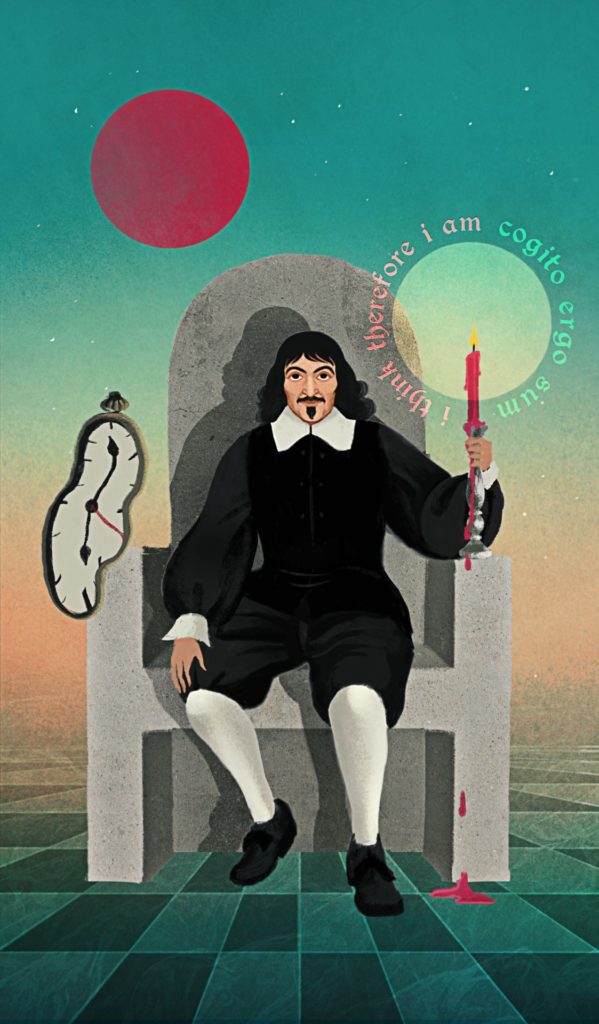René Descartes | Cogito Ergo Sum I ThinkTherefore I Am 1596 FRANCE 1650 SWEDEN
Descartes is a philosopher of reason. He is considered the father of modern Western philosophy because he locates the foundations of all knowledge squarely in the power of rational thought. For Descartes, it is not enough to simply have beliefs; we must also be able to show why our beliefs are true through sound, rationally justified judgements. He asks us to guard against our prejudices and not to be too quick to judge based on insufficient knowledge or mere opinion. Doubt, confusion, and uncertainty all result from the misuse of our rational capacities and maintaining a blind faith in the truth of our senses. Not everything we see, feel, or hear is true: on the contrary, our senses often deceive us. Rational thinking, on the other hand, can isolate our emotions and cultural biases so that we can see things clearly and distinctly. Habits of the mind are difficult to break, but armed with a solid method and clear thinking, we arrive at truths that provide us with confidence. This is Descartes’ message to us—by removing the impediments that cloud our thinking, we can relieve ourselves of doubt and see our way more clearly.

